Search Results
Showing results 61 to 80 of 136

Cutting it Down to Nano
Source Institutions
This simple activity uses paper and scissors to convey two key concepts to learners: the nanoscale is very small and working on the nanoscale requires special tools.
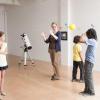
Exploring the Solar System: Big Sun, Small Moon
Source Institutions
“Exploring the Solar System: Big Sun, Small Moon” is a hands-on activity that explores the concept of apparent size and allows visitors to experience this phenomena using familiar objects—a tennis bal

Moving to a Healthier Life
Source Institutions
This game presents you with several different choices you can make in the course of your everyday life to increase your level of physical activity and be healthier.
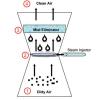
Washing Air
Learners observe and discuss a simple model of a wet scrubber, a device for cleaning industrial air pollution.
Dive into Design
Source Institutions
Based of the The Tech Challenge 2015, learners will engage in two mini-design challenges related to seismic engineering.
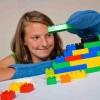
Exploring Tools: Mitten Challenge
Source Institutions
In this activity, learners build a LEGO® structure while wearing mittens. This activity shows learners how difficult it is to build small things when your tools are too big.

What am I?
Source Institutions
In this activity, learners examine nanoscale structures of common things.

Bernoulli Levitator
Source Institutions
Demonstrate the Bernoulli Principle using simple materials on a small or large scale.
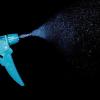
The Search for Secret Agents
Learners tour their school or home looking for sources of indoor air pollutants (IAPs).
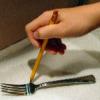
Be a Scanning Probe Microscope
Source Institutions
In this activity, learners investigate Scanning Probe Microscopes (SPM) and then work in teams using a pencil to explore and identify the shape of objects they cannot see, just as SPMs do at the nano
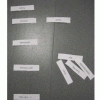
Life Size: Line 'em up!
Source Institutions
In this activity on page 1 of the PDF, learners compare the relative sizes of biological objects (like DNA and bacteria) that can't be seen by the naked eye.

A Merry-Go-Round for Dirty Air
Learners build a model of a pollution control device--a cyclone. A cyclone works by whirling the polluted air in a circle and accumulating particles on the edges of the container.
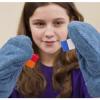
Mitten Challenge
Source Institutions
In this activity, learners try to put together toy bricks—wearing oven mitts on their hands! This activity shows learners how difficult it is to build small things when your tools are too big.

Postcards from Space
Source Institutions
Using information from the My Place in Space lithograph, learners write and/or draw a postcard to friends and family as if they had gone beyond the interstellar boundary of our Solar System, into the

Shark Sizes
Source Institutions
In this graphing exercise (page 2 of the pdf), learners compare their own height to the length of various sharks.

Horton Senses Something Small
Source Institutions
In this story time program, young learners listen to the Dr.
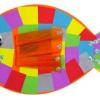
Design-a-Fish
Source Institutions
In this science and language arts activity, learners study fish anatomy and make their very own 3D paper fish.

Cleaning Air with Balloons
Learners observe a simple balloon model of an electrostatic precipitator. These devices are used for pollutant recovery in cleaning industrial air pollution.

Chew that Gum
Source Institutions
In this quick activity (page 1 of PDF under SciGirls Activity: Exercise and Memory), learners will investigate what happens to bubble gum when it is chewed for 5-10 minutes.
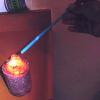
Hot Stuff!: Carbon Dioxide Extinguishes a Flame
In this demonstration, learners observe vinegar and baking soda creating carbon dioxide (CO2) in a bottle. The gas is poured out of a bottle onto a candle flame, putting out the candle.
